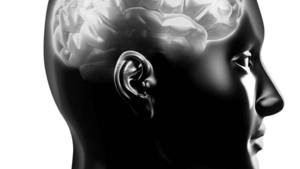by Harriet Hall, MD
Depression affects approximately 10% of Americans. It can be fatal; I found estimates of suicide rates ranging from 2-15% of patients with major depression. When it doesn’t kill, it impairs functioning and can make life almost unbearably miserable. It is a frustrating condition because there is no lab test to diagnose it, no good explanation of its cause, and the treatments are far from ideal.
Jonathan Rottenberg is a psychologist and research scientist who began to study depression after his own recovery from a major depressive illness. He teaches psychology at the University of South Florida, where he is the director of the Mood and Emotion laboratory. He has launched the Come Out of the Dark campaign to start a better, richer national conversation about depression. In a new book The Depths: The Evolutionary Origins of the Depression Epidemic, he reviews insights from recent experiments and asks a number of difficult questions, such as why humans evolved to be subject to incapacitating depressions. He comes up with some startling hypotheses, including the idea that evolution favored depression because of its survival value and that depression is essentially a good thing. He offers his ideas as the basis of a paradigm shift.
Is there an epidemic of depression? Rates of depression have been rising in most but not all countries. Is it a real epidemic, or might we be seeing the influence of increased awareness through the media and better diagnosis? I’m not sure we have enough evidence to be certain at this point.
What is depression? Is it:
- A defect in brain chemistry? This is the basis of drug therapy. The chemistry imbalance hypothesis is simplistic, misleading, and essentially wrong. Antidepressants do indeed alter brain chemistry as they relieve symptoms, but that doesn’t necessarily mean that a chemical imbalance caused the problem, and it doesn’t explain what caused the imbalance or why it happened when it did.
- A defect in thoughts? This is the basis of cognitive behavioral therapy (CBT). Is mere thinking enough to think yourself into a depression or out of one? The evidence suggests otherwise.
- A defect in childhood experience? This is the basis of psychoanalysis. Freud’s theories have been largely discredited, and people with the most appalling childhoods can have normal adulthoods.
- Not a defect at all? This is what Rottenberg proposes.
Evolution did not design us to be happy. It designed us to survive and reproduce. The function of mood is to integrate internal with external information to enhance fitness. Mood affects behavior: an anxious mood focuses attention on threats; a good mood broadens attention and leads people to seek out variety; and a negative mood first mobilizes effort, then eventually de-escalates effort when a task proves hopeless, conserving resources that can later be used to better purpose. Our moods occur first: we feel happy or sad, we feel a need to explain why we feel that way, and we think of a reason that would explain the mood. The reasons we come up with are not necessarily the right ones, and often they are mere confabulations.
Low mood has its benefits. Non-depressed people tend to overestimate their abilities, are prone to positive illusions, and demonstrate overconfidence and blindness to faults. When depressed, people are more realistic; they are more deliberate, skeptical, and careful in processing information from the environment.
Low mood can be triggered in animals and humans by factors such as separation from the group, removal to an unfamiliar environment, the inability to escape from a stressful situation, the death of a significant other, scarce food resources, prolonged bodily pain, and social defeat. Low mood serves as an alarm system. It gets our attention and lets us know something is wrong. Depression allows us to stop, retreat to an emotional cocoon, analyze what went wrong, and hopefully change course to avoid future calamities.
But low mood has its costs, too. Whatever the benefits, there are plenty of negative effects like distorted thinking, delusions, suicide, difficulty in concentrating and functioning, and weakened executive functions in the brain.
A shallow depression can be adaptive, but a deep depression is maladaptive. There’s a continuum, and any cut-off point to divide normal from abnormal is arbitrary. Rottenberg thinks low moods used to be helpful in the environment where humans evolved, but that the environment has changed in ways that make low moods less advantageous today.
He describes animal and human experiments that shed light on depression. Animals show signs of depression too. Animals often act as if they are mourning after they lose a significant other. In the “tail test,” rats suspended by their tails conserve their resources better if they give up quickly and stop struggling. Their low mood resolves quickly when the stress is over. Adolescent girls who had depressive symptoms became more disengaged from goals over time, but the more disengaged they were, the better off they were in later assessments, reporting lower levels of depression. In another study, a negative mood was found to enhance the quality and concreteness of persuasive arguments. In a starvation experiment, subjects developed the signs of depression as their bodies reacted to conserve the insufficient calories. Their energy and concentration diminished, they lost all interest in sex, and they ruminated obsessively about food. By preventing action they couldn’t afford, depression contributed to their survival on scanty rations. Their depression lasted longer than the experiment; Rottenberg hypothesizes that this strategy is effective because it holds behavior in place until depleted resources can be rebuilt.
How does this normally-resilient mood system fall into deep depression? Prolonged shocks produced helpless behavior in dogs, so they didn’t even try to escape from shocks when it was possible to escape. Chronic mild stress in rats reduces their pleasure-seeking behavior for months afterwards; their responsiveness to rewards returns when they are given antidepressants. Undergoing several stressors at once increases the likelihood of depression in both animals and humans. Not every animal shows prolonged depression, just as not every human becomes depressed under equivalent stresses. Genetic variation is likely the reason: it has been estimated that 30-40% of susceptibility to depression in humans is genetic.
Some kind of loss is always present in depression, whether it be the death of a child or an imagined loss of status. Bereavement is one kind of depression, once thought to be a separate entity but now considered to be part of the same continuum.
How long do minor depressions last? There are no good treatments for minor depression, and doctors often resort to “watchful waiting.” This may be a mistake: a study showed that after a month, only 6% of patients had recovered. Another study found that 72% of people who had a minor depression were still bothered by one or more symptoms of depression when interviewed a year later. At any given time, 22% of the population has at least one significant symptom of depression. Mild depressions outnumber deep ones six to one. Low-level sadness is so ordinary it is often overlooked. But having a mild depression quintuples the risk of a later major depression.
Depression can be triggered by events, temperaments, and routines such as sleep patterns, night shifts, and artificial light. Fish with different temperaments have different success in different environments; the bold fish are more likely to enter a trap, while wary fish are slower to adapt to changing conditions. Humans have an additional problem: Rottenberg says “Homo sapiens has the distinction of being a species that can become depressed without a major environmental insult.” We think our way into deeper depressions by rumination and self-flagellation. We worry about remote or nonexistent possibilities. When we are depressed we think we ought to be able to fix ourselves; but we can’t, and that makes us even more depressed.
Sometimes depressed people can’t even get out of bed. This reflects a lack of goals. They don’t see any good reasons that would motivate them to get up. Humans can set goals in abstract domains where progress is hard to measure. When they hold on to failing goals, they become depressed. They need to disengage from the failing goals. Self-help books and the ideals of happiness in our society create high expectations and perceived failures. In the West the idea of happiness usually involves high levels of arousal like enthusiasm and excitement; in general, those who place the highest values on that kind of happiness tend to be the least happy. Asians tend to place greater value on low arousal states like calm and serenity.
According to Rottenberg, depression arises not from a defect, but from what we do well: thinking, using language, holding onto ambitious goals, and even our drive to be happy. Rottenberg says “The picture of depression that emerges is richer, more interesting, and in some ways more troubling than defect-model approaches would allow.”
He offers clues about how low moods can be better managed: appreciating the costs of thinking, sometimes accepting a low mood with equanimity, aiming for goals that are high but not too high, knowing when it is time to give up on a goal, and realizing that happiness is not itself a goal but “a fleeting byproduct of progress towards other goals.” Despite the evolutionary directive to become depressed, we retain a margin of control to shape its course.
We have learned that depression comes on more gradually and lifts more gradually than we once thought. We can’t predict whether a patient will respond to any treatment, but that doesn’t mean we shouldn’t keep trying. We used to think antidepressants took 6 weeks to show an effect, but we often see patients improving in the first two weeks, even those taking a placebo! Early improvement doesn’t predict final outcome. Early improvers may face fewer life problems, have an innate resilience, or maybe they are just lucky. Recovered patients may still have some residual depression and fear that a relapse could happen any time. A deep depression can re-program our mood system so that it favors a return to low mood states; but the same brain plasticity also allows for re-re-programming to a more normal state with treatments like mindfulness-based cognitive therapy, which attempts to disconnect sad moods from negative thoughts about the self. Mood can be rebuilt by changing the way we think, our environment, our relationships, and our health habits like sleep, diet, and exercise.
“Just like hunger or pain, moods are survival-relevant mental states that can bind together thoughts, feelings, and memories [and] change our mental priorities.” But they lead to mood-congruent memory, where we retrieve memories that match our current mood and are unable to call up contradictory memories. This can fortify us to change our situation, but it also tends to deepen the depression and makes us mentally less nimble.
Depression can be viewed as an opportunity. Rottenberg describes a patient who used her depression as a lens to re-evaluate everything in her life and re-set her priorities. Her life was better after the depressive episode than before.
Conclusion
Rottenberg calls his ideas the “mood science approach” to depression. He says:
The evolutionary perspective asks us to be patient, to learn to tolerate some degree of low mood, and to listen to what it is that low mood can tell us.
I don’t think his approach qualifies as a “paradigm shift,” but he does provide some valuable insights about this frustrating condition. Some of these insights are speculative, but most are based on recent animal and human research.
I used to try to reduce the stigma and guilt of obesity by telling obese patients that their tendency to store calories as fat was not a bad thing per se: it would give them a survival advantage over thinner people in a starvation environment or an environment of alternating feast and famine. But in our modern environment, where food is plentiful, the survival advantage is with the non-obese. I don’t think what I said made them lose weight more successfully, but I hope it provided some degree of comfort and reduced guilt. In the same way, Rottenberg’s concepts may help destigmatize depression. Depressed patients may feel better about their condition if they are told that it is a result of evolutionary traits that are basically good for us but that sometimes overdo it. If nothing else, the ideas and the experimental evidence Rottenberg presents provide plenty of food for thought.
_________________________________________________________________________________________
 Harriet Hall, MD also known as The SkepDoc, is a retired family physician who writes about medicine, so-called complementary and alternative medicine, science, pseudoscience, questionable medical practices and critical thinking. She received her BA and MD from the University of Washington, did her internship in the Air Force (the second female ever to do so), and was the first female graduate of the Air Force family practice residency at Eglin Air Force Base. During a long career as an Air Force physician, she held various positions from flight surgeon to DBMS (Director of Base Medical Services) and did everything from delivering babies to taking the controls of a B-52. She retired with the rank of Colonel. She is an editor and one of the five MD founders of the Science-Based Medicine blog. Dr. Hall writes the SkepDoc column in Skeptic magazine, and is a contributing editor to Skeptic and Skeptical Inquirer, as well as a medical advisor and author of articles on the Quackwatch website. She recently published Women Aren’t Supposed to Fly: The Memoirs of a Female Flight Surgeon and co-author of the recently released textbook “Consumer Health: A Guide to Intelligent Decisions,” and was appointed to the Executive Council of the Committee for Skeptical Inquiry.
Harriet Hall, MD also known as The SkepDoc, is a retired family physician who writes about medicine, so-called complementary and alternative medicine, science, pseudoscience, questionable medical practices and critical thinking. She received her BA and MD from the University of Washington, did her internship in the Air Force (the second female ever to do so), and was the first female graduate of the Air Force family practice residency at Eglin Air Force Base. During a long career as an Air Force physician, she held various positions from flight surgeon to DBMS (Director of Base Medical Services) and did everything from delivering babies to taking the controls of a B-52. She retired with the rank of Colonel. She is an editor and one of the five MD founders of the Science-Based Medicine blog. Dr. Hall writes the SkepDoc column in Skeptic magazine, and is a contributing editor to Skeptic and Skeptical Inquirer, as well as a medical advisor and author of articles on the Quackwatch website. She recently published Women Aren’t Supposed to Fly: The Memoirs of a Female Flight Surgeon and co-author of the recently released textbook “Consumer Health: A Guide to Intelligent Decisions,” and was appointed to the Executive Council of the Committee for Skeptical Inquiry.
Healthy Skepticism is republishing selections from Dr. Hall’s blog with permission. Please visit Science Based Medicine.




